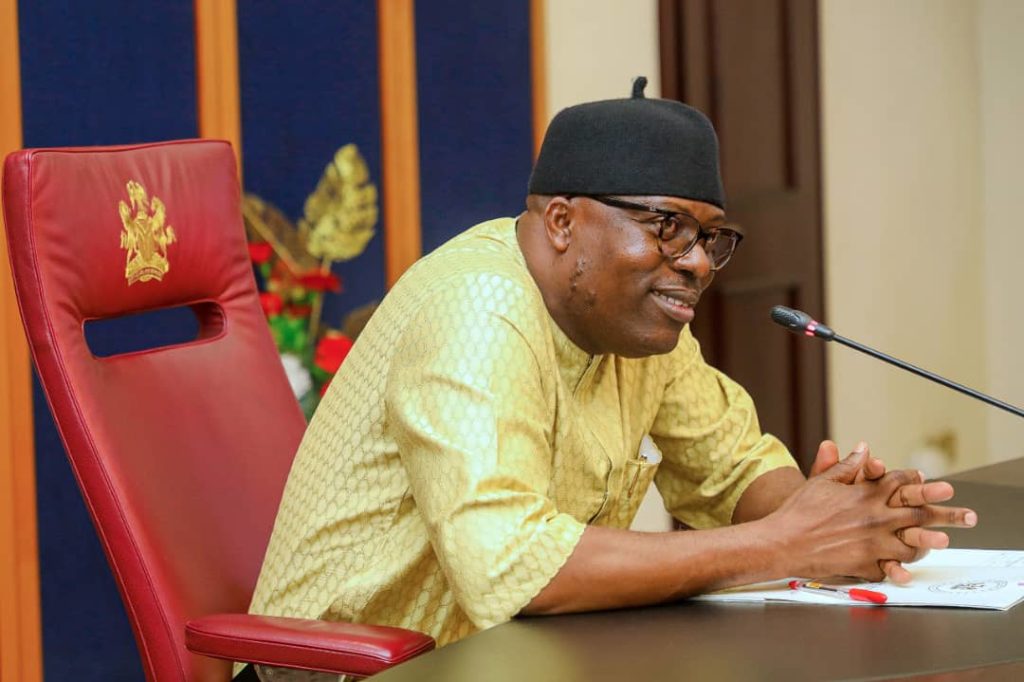The Supreme Court of Nigeria has heard from seven governors of the Peoples Democratic Party (PDP) that they want to challenge Siminalaye Fubara, the governor of Rivers State, for six months.
The President’s authority to carry out such a (suspension) action is being challenged by the governors of Bauchi, Adamawa, Bayelsa, Enugu, Osun, Plateau, and Zamfara.
Bola Tinubu, president, and the National Assembly are named as respondents in the lawsuit.
READ MORE:   Tinubu Swears In Ibok-ete Ibas As Rivers Sole Administrator
The seven state governors urged the Supreme Court to declare that “the President has no power whatsoever or authority to suspend a democratically elected governor and deputy governor of a state in the Federation of Nigeria under the guise of or pursuant to the proclamation of a state of emergency, including the states represented by the plaintiffs.” based on the provisions of sections 1 (2), 5 (2), and 305 of the 1999 Constitution (as amended).

In accordance with Sections 192 (4) (6) and 305 of the Federal Republic of Nigeria’s 1999 (as amended), the governors also urged the apex court to declare that the president has no authority to suspend a democratically elected state’s House of Assembly.
The appellants (seven state governors) requested a declaration that “the suspension of Rivers State House of Assembly members, his deputy, and their representatives was unlawful, unlawful, and in gross violation of the provisions of the 1999 Constitution (as amended)””.
The governors contend that President Tinubu is ineligible to appoint a sole administrator in his place and suspend a serving governor.
The governors urged the Supreme Court to annul the Sole Administrator’s appointment to oversee Rivers State’s affairs.
They objected to the National Assembly’s use of voice votes to ratify President Tinubu’s decisions because they were constitutional.

They claimed that the defendants’ declaration of a state of emergency in Rivers State did not adhere to Section 305 of the 1999 Constitution (as amended)’s constitutional requirements.
Additionally, the parties claimed that President Tinubu’s proclamation did not adhere to the required terms and procedures for making such a declaration, claiming that it was made for reasons beyond those set forth in the Constitution.
Additionally, they contend that the National Assembly’s voice vote for the state of emergency violated the Constitution’s requirement for a two-thirds majority of the members of each legislative chamber.
They requested the Supreme Court’s request for the following reliefs: “An order revoked the first defendant’s false approval of the second defendant’s declaration of a state of emergency in Rivers State.”
An order forbids the defendant from carrying out the governor and deputy governor of Rivers State’s unlawful suspension on himself, his employees, agents, and privies.
An order forbids the defendant from influencing the governor and deputy governor of Rivers State’s execution of their constitutional and statutory duties as well as their electoral mandate by himself, his servants, agents, and privies.
An order forbids the defendant from attempting to suspend any other governor of any state in Nigeria, particularly the plaintiffs, from preventing interference with or compromising their constitutional and statutory obligations.
President Tinubu appointed a sole administrator to carry out the governor’s duties in the state for the duration of the suspension, which included Fubara, his deputy Ngozi Odu, and members of the Rivers House of Assembly.

